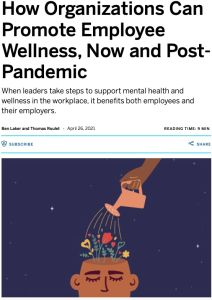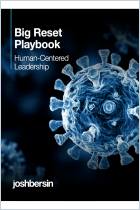Melden Sie sich bei getAbstract an, um die Zusammenfassung zu erhalten.

Melden Sie sich bei getAbstract an, um die Zusammenfassung zu erhalten.
Ben Laker and Thomas Roulet
How Organizations Can Promote Employee Wellness, Now and Post-Pandemic
When leaders take steps to support mental health and wellness in the workplace, it benefits both employees and their employers.
MIT Sloan Management Review, 2021
Was ist drin?
Leaders must address workplace stressors proactively.
Recommendation
The year 2020 was unprecedentedly stressful for employees. Even if the COVID-19 pandemic is drawing to a close, stressors accumulated during the past year will continue to affect employees, if they are not addressed properly. Researchers Ben Laker and Thomas Roulet offer hands-on advice about what companies can do to preempt, detect and remedy workplace stressors – and prevent widespread burnout from taking hold.
Summary
About the Authors
Ben Laker is a professor of leadership at Henley Business School at the University of Reading. Thomas Roulet is a senior lecturer in organization theory at the University of Cambridge.




















Comment on this summary